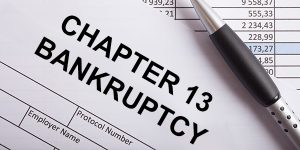Chapter 13 Bankruptcy Attorney – How a Chapter 13 Bankruptcy Attorney Can Help
 If you’re drowning in debt, it may be time to consider filing for Chapter 13 bankruptcy. This form of bankruptcy offers debt relief, allowing you to keep your assets and eliminate your unsecured debt. It also allows you to restructure your debt with a repayment plan, which can take three to five years to complete.
If you’re drowning in debt, it may be time to consider filing for Chapter 13 bankruptcy. This form of bankruptcy offers debt relief, allowing you to keep your assets and eliminate your unsecured debt. It also allows you to restructure your debt with a repayment plan, which can take three to five years to complete.
Chapter 13 Bankruptcy Attorney in Phoenix
The best Chapter 13 Bankruptcy Attorney in Phoenix will guide you through every step of the process, answering your questions and ensuring that your case is filed correctly. You can avoid costly mistakes and ensure that your case is successful by following these simple steps:
Identify All Debts
Before filing for Chapter 13, you should thoroughly review all of your debts. This will help your attorney determine the best course of action for you. This will include eliminating unsecured debts such as credit cards and medical bills. It will also involve paying off secured debts, such as mortgages and auto loans.
A good Chapter 13 Bankruptcy Attorney will work with you to develop a repayment plan, which is based on your income, assets and amount of debt. It will be tailored to your specific financial situation and will require you to make regular payments to your bankruptcy trustee, your attorney and any assets that you have that are being used as collateral for your debt.
Creating a Repayment Plan
A Chapter 13 bankruptcy plan requires your attorney to calculate your monthly disposable income, which is the money you have left over each month after making all of your living expenses. You will then pay this amount to the trustee who will disburse it to your creditors. Your attorney will also work with you to come up with a repayment plan that will allow you to eliminate most of your debt over the course of the three to five-year period.
You will then have to attend a meeting of creditors in which you will be asked to explain your payment plan to all your creditors. During this meeting, any creditor can object to your plan.
If your creditor does not object to your plan, you will then have to attend a confirmation hearing where the court will decide whether your plan is feasible and meets the standards set forth in the Bankruptcy Code. This is a crucial step in the bankruptcy process.
The bankruptcy trustee is also allowed to object to your plan if he believes that the payment amount is less than what the creditor would receive if the assets of the debtor were liquidated in Chapter 7. A Chapter 13 bankruptcy is a complex process and it’s important to have a good attorney by your side.
The best Chapter 13 Bankruptcy Attorney will ensure that your debt is eliminated and you can get back to living a debt-free life. They can also assist you in preventing a home foreclosure, helping you make up for delinquent car or mortgage payments and more.